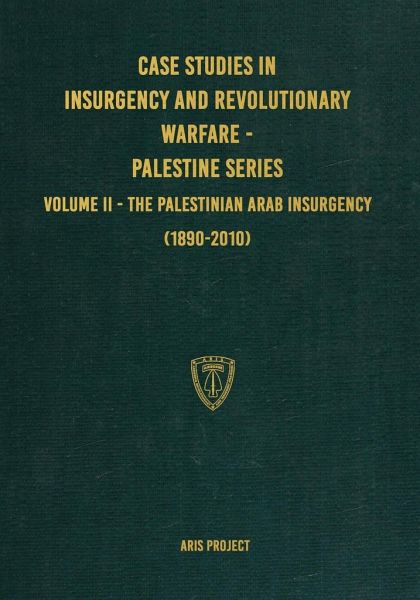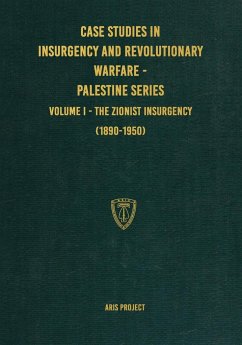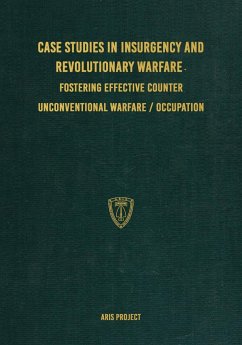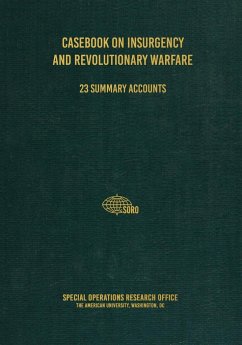
Case Studies in Insurgency and Revolutionary Warfare - Palestine Series
Volume II - The Palestinian Arab Insurgency (1890-2010)
Herausgeber: Brown, C.
Versandkostenfrei!
Versandfertig in 1-2 Wochen
63,99 €
inkl. MwSt.
Weitere Ausgaben:

PAYBACK Punkte
32 °P sammeln!
Palestine is an area, a country, with a recorded history that stretches back millennia. Many nations of people have lived, farmed, built, warred, and died in the area the world has known as Palestine. Seen as a Holy Land by the Jewish, Islamic and Christian Faiths, the borders of this territory have also shifted over history both ancient and more recent, sometimes stretching north into modern day Lebanon, south into the Sinai Peninsula, and east across the Jordan River deep into the contemporary Hashemite Kingdom of Jordan. Today, Palestine refers to a group of people, a nation, that has long ...
Palestine is an area, a country, with a recorded history that stretches back millennia. Many nations of people have lived, farmed, built, warred, and died in the area the world has known as Palestine. Seen as a Holy Land by the Jewish, Islamic and Christian Faiths, the borders of this territory have also shifted over history both ancient and more recent, sometimes stretching north into modern day Lebanon, south into the Sinai Peninsula, and east across the Jordan River deep into the contemporary Hashemite Kingdom of Jordan. Today, Palestine refers to a group of people, a nation, that has long resisted first the formation and later the continued existence of Israel, with undergrounds, guerrillas, terrorists, and governing bodies that have waged a generations-long military and political insurgency against the modern Jewish state which they see as a force militarily occupying Palestinian land. Yet this insurgency, one of the most intractable and notable of both the twentieth and twenty-first centuries, continues to fail to reach either its military or political goals. Why is that? Is it a lack of sufficient external support? Or extremely effective counterinsurgency practices on the part of Israel? Or is it the absence of a strong common identity and narrative for the nascent nation of Palestine? This second volume of the ARIS Project's Case Studies in Insurgency and Revolutionary Warfare - Palestine Series seeks to answer these questions through a deep exploration of the Palestinian insurgencies which have operated in the area over many generations, fighting not only the modern state of Israel, but the Ottoman Empire, the British Empire and mass Jewish migration to Palestine before and immediately following the Second World War.












